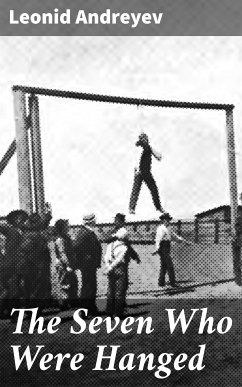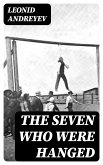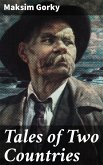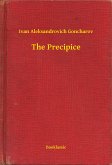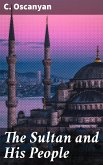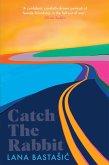Leonid Andreyev's "The Seven Who Were Hanged" presents a profound exploration of human morality and existential despair through the lens of a political execution in Tsarist Russia. The narrative intricately weaves together the psychological and emotional turmoil of the seven condemned men, capturing their reflections on life, guilt, and the inevitability of death. Andreyev's literary style is marked by its stark realism and often surrealistic undertones, creating a haunting atmosphere that compels readers to grapple with the moral ambiguities of justice and the human condition. Set against the backdrop of a tumultuous era, the novella resonates with themes of sacrifice, redemption, and the struggle for meaning amid despair, encapsulating the tensions inherent in a society on the brink of change. Andreyev, a pivotal figure in Russian literature, was profoundly influenced by the socio-political climate of his time, characterized by revolutionary fervor and philosophical inquiry. His personal experiences with suffering and exposure to existential thought galvanized his literary voice, prompting him to confront complex moral issues and human psychology. This novella exemplifies his deep empathy for the plight of the oppressed, revealing his commitment to capturing the human experience in all its tragic dimensions. Readers seeking a poignant reflection on the intersections of life, death, and morality will find "The Seven Who Were Hanged" an invaluable addition to their literary repertoire. Andreyev's powerful storytelling invites introspection and challenge, making it an essential read for those interested in the moral complexities of human existence and the consequences of societal injustice.
Dieser Download kann aus rechtlichen Gründen nur mit Rechnungsadresse in A, B, BG, CY, CZ, D, DK, EW, E, FIN, F, GR, H, IRL, I, LT, L, LR, M, NL, PL, P, R, S, SLO, SK ausgeliefert werden.

